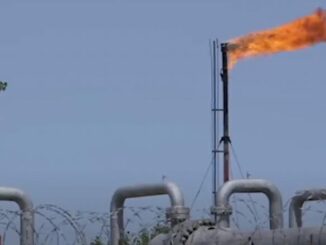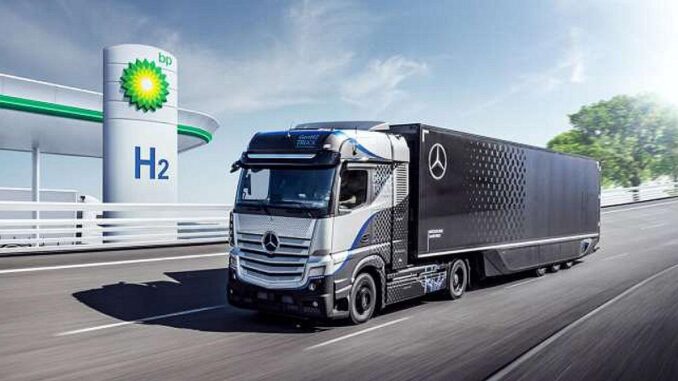
BRUSSELS, Belgium, January 18, 2024 (ENS) – European lawmakers today agreed on emission targets for the greenhouse gas carbon dioxide (CO2) from heavy-duty vehicles that will phase out almost all sales of new diesel trucks by 2040.
Trucks carry 77 percent of all freight transported over land in the European Union, and after passenger cars, heavy-duty vehicles are the second biggest transport polluters in Europe.
Road transport is responsible for one third of all final energy consumed in the EU. The heavy-duty vehicle sector is responsible for over 25 percent of greenhouse gas emissions from road transport in the EU. Truck manufacturers will have to cut the average emissions of new trucks by 45 percent in 2030, 65 percent in 2035 and 90 percent in 2040 to meet the new targets.
“To reach the EU’s climate and zero pollution goals, all parts of the transport sector have to actively contribute,” Frans Timmermans, executive vice-president for the European Green Deal, said.
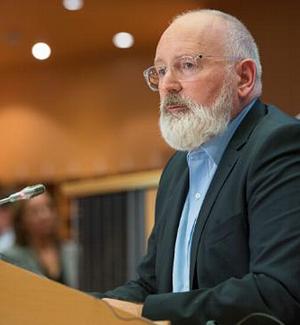
“In 2050, nearly all of the vehicles on our roads have to be zero-emission. Our Climate Law requires it, our cities demand it, and our manufacturers are gearing up for it,” Timmermans said. “With today’s proposal, we are making sure that new trucks are becoming less polluting and that more buses with zero emissions will ride through our cities. Fighting the climate crisis, enhancing the quality of life of our citizens, and boosting Europe’s industrial competitiveness go hand-in-hand.”
CO2 emissions standards for certain heavy-duty vehicles were set for the first time in 2019, with targets for 2025 to 2029, and for 2030 onwards, with a provision that there would be a review of the regulation by 2022.
On February 14, 2023, the Commission submitted a proposal for a revision of the CO2 emissions standards for heavy-duty vehicles. Although the proposal is not part of the Fit for 55 package, it is closely linked in that it contributes to the EU’s aim to reduce its net greenhouse gas emissions by at least 55 percent by 2030 compared to 1990 levels, and to achieve climate neutrality in 2050.
The current EU heavy-duty vehicle fleet is run almost entirely on internal combustion engines fueled by imported fossil fuels, contributing to the EU’s energy dependency.
Emissions in the heavy-duty vehicle sector have been increasing year-on-year since 2014, with the exception of the year 2020 due to the COVID-19 pandemic. Especially in the freight sector, emissions are increasing rapidly due to growing road transport demand, which is expected to keep rising in the future. In 2019, freight emissions were 44 percent higher than emissions from the aviation sector and 37 percent higher than maritime transport emissions, according to the European Commission.
European Automobile Manufacturers’ Association, or ACEA, unites Europe’s 15 major car, truck, van and bus makers.
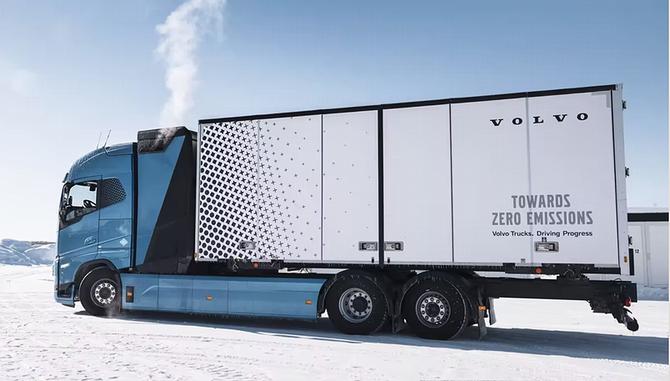
ACEA Director General Sigrid de Vries said, “For truck and bus manufacturers, the question is not if, but how fast we can decarbonize. We’re doing our part by providing the vehicles and technology to make Europe’s road transport fossil-free by 2040. Yet, failure to address enabling conditions will not only slow down our sector’s green transition, but also threaten our global competitiveness.”
Under the proposal agreed today, CO2 reductions are to be achieved through improvements in vehicle technology. With these new standards, the demand for fossil fuels, mostly oil products such as diesel, is expected to decrease by around two billion barrels of oil over the period 2031 to 2050.
The main changes relate to the extension of the scope of the regulation to cover buses and trailers, the definition of ‘zero-emission vehicle’, and new EU-wide emission reduction targets for 2030, 2035 and 2040.
These targets do not apply to trailers and urban buses, which are subject to separate, specific CO2 emission reduction requirements.
To stimulate faster deployment of zero-emission buses in cities, the European Commission proposes to make all new city buses zero-emission as of 2030.
On January 11, in Brussels, Harald Seidel, president of the Dutch truck manufacturing company DAF Trucks, was elected chairman of the Commercial Vehicle Board of the European Automobile Manufacturers’ Association for 2024, putting him on the front lines for a remake of the heavy-duty truck industry.

“2024 will be a game-changing year for the European truck industry,” said Seidel. “Firstly, negotiations on the CO2 regulation for heavy-duty vehicles, which enshrines more ambitious decarbonisation targets for trucks and buses into law, should be wrapped up over the coming months.”
“Let there be no doubt: truck and bus manufacturers are dedicating all their efforts to help decarbonise road transport. But policy makers must match the ambitious targets for vehicle manufacturers with equally ambitious conditions to enable their market uptake,” Seidel said.
“Europe’s whole heavy-duty transport ecosystem requires a rapid transformation, involving efforts from a wide range of public and private actors – not just truck makers,” cautioned Seidel. “We are playing our part by investing billions in zero-emission battery-electric and hydrogen-powered vehicles, and this is already paying dividends for Europe’s green transition.”
Truck Owners Will Save on Fuel Costs
Stronger CO2 standards will provide benefits for transport operators and users in the form of lower fuel costs and cost of ownership of the vehicles. The total cost of ownership for first users of a new heavy-duty vehicle will be reduced with savings on average around €9,000 for a vehicle purchased in 2030 and €41,000 for a vehicle purchased in 2040.
Europe’s leading nonprofit group campaigning for cleaner transport, Transport & Environment, T&E, said the law provides European truck producers with planning certainty to go to zero emissions and compete with foreign electric truckmakers.
Fedor Unterlohner, freight manager at T&E, said, “The EU is clearly telling truckmakers when almost all their vehicles will need to be zero emissions. European producers now have a clear trajectory to ramp up production of electric and hydrogen rigs and be ready for the challenge of Tesla and Chinese rivals.”
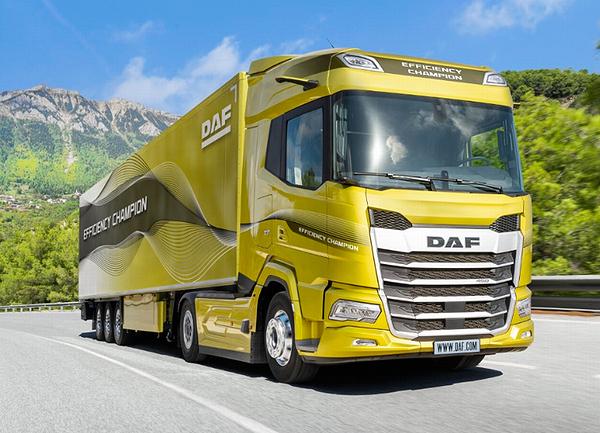
EU governments and MEPs agreed that, from 2035, the targets will also apply to vocational vehicles such as garbage and construction trucks.
T&E said this extension will result in an additional seven percent of the heavy-duty vehicle market being subject to CO2 targets.
The negotiators resisted pressure from the fossil fuel industry to create a loophole in the targets for e-fuels and biofuels.
Trailer manufacturers need to improve the emissions performance of truck trailers by 10 percent in 2030, a weaker target than proposed by the Commission.
The CO2 target for buses was also reduced to 90 percent in 2030, reaching 100 percent by 2035.
T&E estimates the EU targets will result in around 30 percent of trucks sold in 2030 being electric or hydrogen, with zero emissions. By 2040, at least three-quarters of all trucks sold will be zero emissions under the new targets.
Unterlohner concluded, “No stakeholder got everything they wanted, but the truth is this is a very balanced deal and positive news. One of Europe’s biggest polluters has a path to go green. Long-term investment certainty has been given to manufacturers and the freight industry. Now let’s start implementing.”
In line with the European Green Deal and REPowerEU objectives, this proposal will also have a positive impact on the energy transition, by lowering demand for imported fossil fuels and enhancing energy savings and efficiencies in the EU’s transport sector.
The new targets are expected to improve air quality, notably in cities, and the health of Europeans.
This is a key sector to support the European clean tech industry and boost international competitiveness. The EU is a market leader in the production of trucks and buses and a common legal framework helps to secure that position for the future.
In particular, the Commission said, the revised standards provide a clear and long-term signal to guide EU industry investments in innovative zero-emission technologies and boost the rollout of recharging and refueling infrastructure.
The agreement is provisional pending formal adoption by both institutions – the European Council and the European Parliament.
Featured image: Daimler heavy-duty hydrogen fuel cell truck passes a hydrogen station on a road in the European Union. 2023 (Photo courtesy Daimler)

